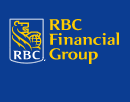 |
 |
   |
|||||||||
RBC is committed to healthy communities – and that means supporting health care and research at both the institutional and community levels. Our employees also volunteer their time and energy to health care organizations and charities around the world. Health giving Some of the major gifts from the RBC Foundation in 2003 included $113,500 to the Multiple Sclerosis Society of Canada for various initiatives across the country. Our employees are active supporters of this cause too, especially in the annual Super Cities Walk for MS. Since 1983, RBC has donated more than $2,400,000 to the Heart and Stroke Foundation of Canada, including a corporate gift of $360,000 paid out over three years, beginning in 2002. This support has helped to pioneer the development of a unique women’s section on the national Heart and Stroke Web site. “Actively” seeking
cures She’s typical of the thousands of RBC employees who walk, run, cycle and even canoe to raise money and awareness for health-related causes. Among others were 50 Dain Rauscher employees in Minneapolis, who joined more than 8,000 people in the annual Minnesota AIDS Walk, the state’s largest AIDS fundraiser. Still others get involved in the planning stages of events, such as Edna Johnson of Slave Lake, Alberta, who organized a Ride for Life to raise almost $5,000 for the Heart and Stroke Foundation. A
partnership between science and finance Enter MaRS: the Medical and Related Sciences (MaRS) Discovery District. Situated just blocks from the financial sector in downtown Toronto, this facility is Canada’s newest biotech and life-sciences hub, a place where researchers and companies in life sciences and other related disciplines can work together and build critical mass to make more discoveries, and then bring them to market more quickly and efficiently. The end result will be the growth of stronger Canadian companies, and the creation of high-value jobs for the future. RBC Financial Group is committed to the prosperity of this sector, which is why CEO Gordon M. Nixon was keynote speaker at the launch of MaRS. His main message? If Canada is to have a successful medical and related sciences industry, it will need a deeper pool of investment capital. “We have to do much more to develop a financing system that can deal with the high risk and long lead times that characterize the world of bioscience. MaRS means that the world of science and the world of finance have become neighbours.” |
|||||||||
|
|||||||||
To support the wellness of our employees, RBC provides dependent-care support, flexible work arrangements, time-off or leave policies and wellness programs. Promoting wellness As part of our overall goal of greater community support for the Peel Region of Ontario, where our RBC Insurance head office is located, we also hosted the first annual Charity Golf Classic for the Hospice of Peel, raising almost $60,000 for this agency that helps people living with life-threatening illnesses. Supporting health and wellness is equally important for us in the United States. For example, Cindy Sloan from RBC Insurance in Greenville, South Carolina, organized her own 239-member team to take part in the Komen Upstate South Carolina Race for the Cure, and more than 80 other employees took part too. RBC Insurance was a gold sponsor of this annual event to raise funds for breast cancer research. Terry Fox – and more Cancer has touched just about all of us, whether personally or through a friend or relative. So it’s not surprising that RBC and our employees want to help find a cure – and support those who have the disease. In Manitoba, RBC donated $5,000 to the Manitoba Prostate Cancer Support Group in honour of a local cancer survivor who established 80 support groups across Canada. For more information on RBC’s support of health, visit rbc.com/community An ounce of prevention Dr. Wolfe, the first holder of the RBC Investments Chair in Children’s Mental Health and Developmental Psychopathology, believes it’s far better to prevent the problem in the first place. “Trauma resulting from unhealthy relationships is easier to prevent than to treat.” The Chair was announced in 2001, along with a $2 million pledge from RBC Foundation over four years. Dr. Wolfe has developed a curriculum for teens, focused on preventing dating violence and other high-risk behaviour. Called The Fourth R, it is based on the principle that relationship skills can be taught the same way as the traditional 3 Rs. It is being piloted in London, Ontario. |
|||||||||
|
|||||||||
|
|